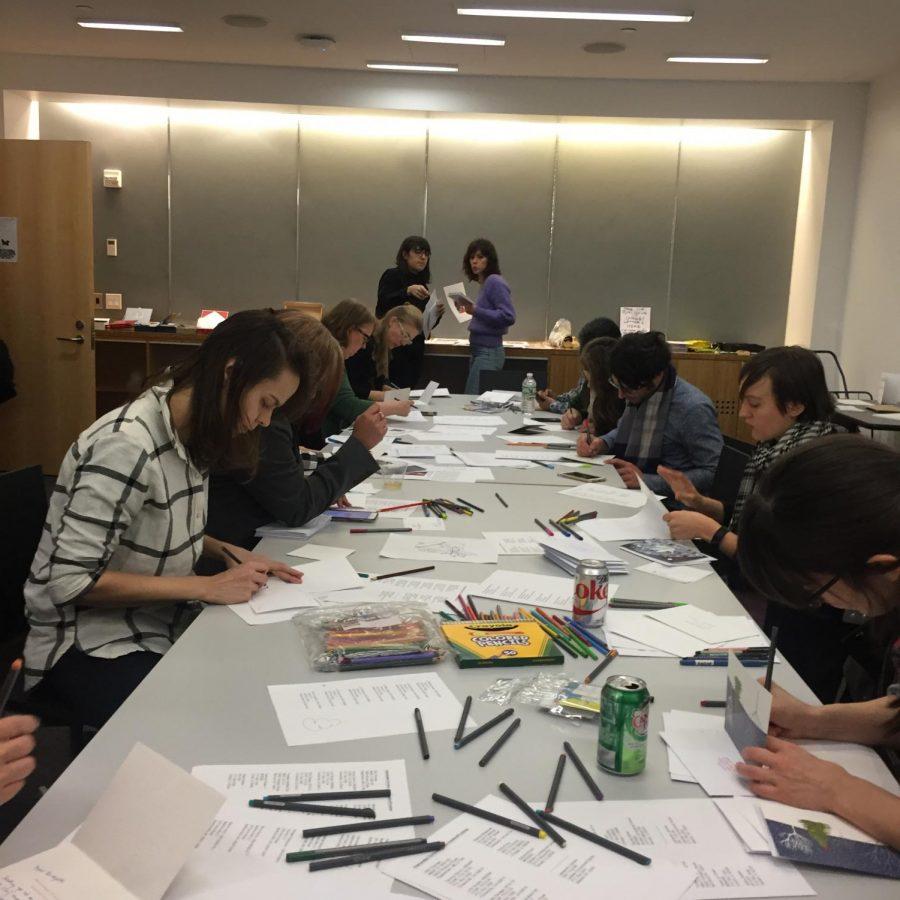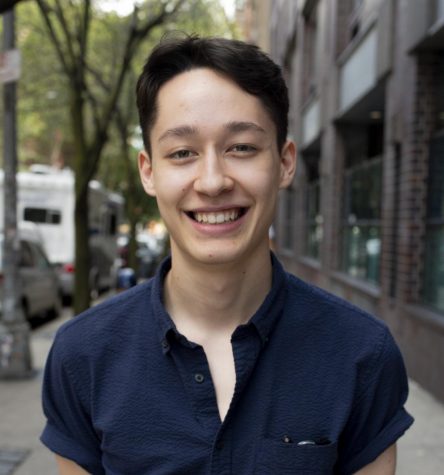Students Sign Holiday Cards for Incarcerated Individuals
Members of the NYU community spent their Friday night writing holiday letters to incarcerated individuals.
December 4, 2017
Instead of spending their Friday night cramming for the end of the semester or grabbing an after-work cocktail, students, professors and alumni of NYU’s Prison Education Program wanted to spend their evening writing holiday cards to incarcerated people.
The event, held on Dec. 1 in the Department of Social and Cultural Analysis, was organized by Survived and Punished, an organization aiming to build a movement to support survivors of domestic and sexual violence and attempting to end gender violence; NYU’s PEP; and Project Nia, an organization that tries to reduce the reliance on arrest, detention and incarceration for addressing youth crime.
Mariame Kaba, the founder of Project Nia and a key organizer of the event, reached out to advocacy groups including Black and Pink, a group that supports LGBTQ prisoners, and Liberation Library, which provides books to youth in prison, to get the names of incarcerated individuals who wanted to receive a holiday card.
“It’s a way to make a connection between people who are on the outside and people who are behind the wall to make sure that people know they’re not forgotten and we are not going to allow them to be disappeared,” Kaba said. “Especially during the holidays it’s often a very lonely time for people who are incarcerated, so getting a card from someone that has been thinking of you is important and significant.”
People were able to write cards to incarcerated youth and to people who have been sentenced to prison time for defending themselves against their abusers. Posters adorned the wall telling the stories of victims of domestic violence who were incarcerated for fighting back against their abusers, and participants were encouraged to send holiday cards to these people, sending messages of support and love.
One of those stories was Tewkunzi Green’s.
“Tewkunzi Green was holding her infant son when she was attacked by her child’s father,” a poster read. “He backed her up against the kitchen sink and choked her. Tewkunzi grabbed a knife and stabbed him once in the chest and he eventually died. She was prosecuted and sentenced to 34 years in prison.”
Kaba, a prison abolitionist whose work often focuses on transgender people, victims of domestic and sexual violence and other marginalized groups, said prisons are not solutions to social ills.
“Prisons make people worse I don’t think they solve any problems, I think they actually worsen the situation,” Kaba, who believes in transformative justice and community accountability processes as alternatives to incarceration, said. “What we have to do is transform the conditions that lead to people feeling that they need prisons and jails and surveillance. That’s an abolitionist project.”
Kaba decided to hold the event in partnership with PEP because she has known PEP’s Administrative Director Rachel Hudak for several years. The two organized together when they lived in Chicago.
Richa Lagu, a CAS senior and office assistant for NYU’s PEP, was there to support incarcerated individuals and to ensure that the event went smoothly.
“I think it’s really important to share love and support to the members of our society who are facing struggles and who a lot of people tend to forget about at this time of the year,” Lagu said. “The outpouring of care and the determination to be kind and helpful was something really amazing to see during the event.”
A version of this article appeared in the Monday, Dec. 4 print edition. Email Sayer Devlin at [email protected].

























































































































































